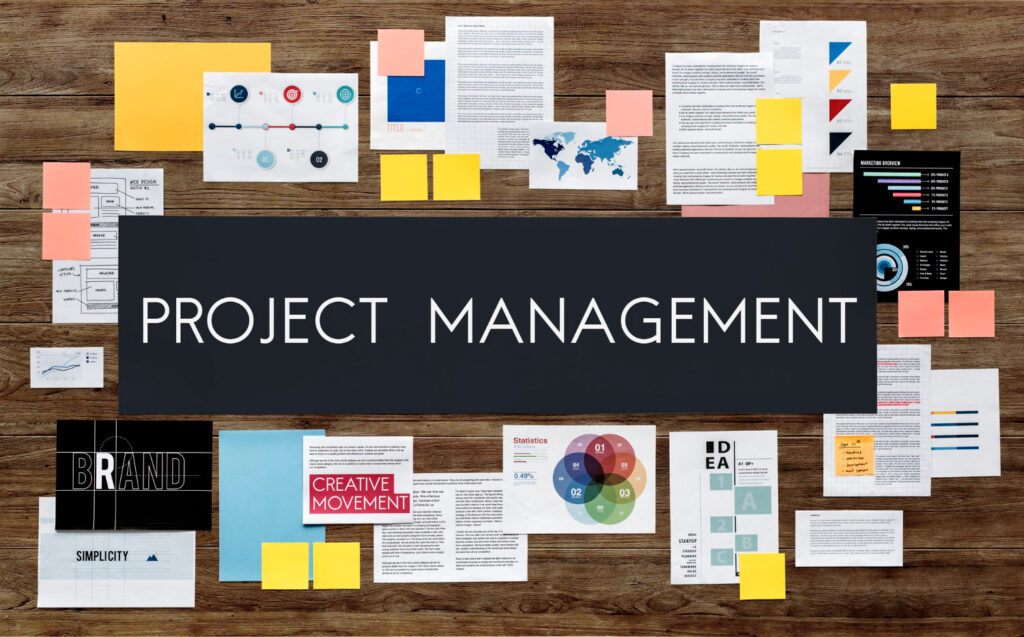Project management is among the top skills in modern business. Be it small initiatives or large projects, effective planning, execution, and closure are crucial to achieving strategic objectives. Projects are becoming increasingly complex across industries, and mastering project management principles has been placed on the agenda of many professionals as a means of driving success within organizations.

This article illuminates the fundamentals of project management, the latest methodologies, and essential best practices that will facilitate the process of managing projects.
What Is Project Management?
The knowledge, skills, tools, and techniques applied to meet project requirements and achieve specific objectives are referred to as project management. This involves managing a project from its initiation right through to its close-out, ensuring that the project is completed on time, at budgeted cost, and quality standards. It includes five major phases:
- Initiation: Developing the purpose, scope, and project objectives; identification of key stakeholders for the project.
- Planning: This includes elaborating the project plan, defining activities, time estimates, resource assignments, and risk management strategies.
- Execution: This means coordinating resources and team members and executing the project to meet the project objectives.
- Monitoring and Controlling: Observe the progress of the project. More so, keep its changes under control and keep the project on track as far as time, cost, and quality are concerned. Utilizing a week calendar view can help track the project’s progress more effectively, ensuring that deadlines are met and any changes are managed within the allocated time frame.
- Closure: Complete all activities, hand over the finished project to stakeholders, and give a final review of the project’s outcomes.
Successful delivery requires a combination of technical capability and the ability to lead teams through these phases, adapting to the various challenges.
Popular Project Management Methodologies
There are several project management methodologies, each containing principles, processes, and tools. The correct methodology should be selected since it will have a profound impact on the project’s outcome. Some of the popular ones are discussed below.
1. Waterfall Methodology
The Waterfall methodology is one of the classic methods in project management. It structurally organizes processes in a linear, sequential manner. Each phase of the project should be completed before the next phase can potentially be started, which makes it appropriate for projects with well-identified requirements and few changes expected. This approach is common in construction, manufacturing, and other industries where making changes during the project becomes costly or impossible.
Pros:
- Clear structure and documentation.
- Very easy to understand and manage.
- Applied to projects with fixed scope.
Cons:
- It will not accommodate changes once the project is up and running.
- Not adaptable to dynamic environments.
2. Agile Methodology
Therefore, Agile is flexible and iterative in handling projects, keeping the main focus on delivering incremental progress through short cycles called sprints. It emphasizes collaboration, customer feedback, and adaptive planning; therefore, it is considered ideal for projects where requirements are probably going to evolve with time. Agile can thus be found in software development and IT projects.
Pros:
- High flexibility and adaptability.
- Pay more attention to customer satisfaction through iterative delivery.
- Improved team collaboration and communication.
Cons:
- This methodology requires a lot of discipline and self-organization.
- It may not be easy to use on big projects with many complexities.
3. PRINCE2 Methodology
PRINCE2 is a process-based approach to project management. Due to its step-by-step approach, with a strong emphasis on business justification, defined roles, and flexibility, it is already widely recognized and applied. PRINCE2 can be applied to both the smallest and largest projects and to all industries. Based on PRINCE2, its principles must ensure that projects are given the right direction and focus through controlled and structured phases.
Pros:
- There is a very clear framework with defined processes involved.
- It clearly emphasizes accountability and clear roles among the people.
- This applies to different types and sizes of projects; hence, it is flexible and scalable.
Cons:
- It can be process-heavy, especially in the case of smaller projects.
- In-depth training and certification are required to implement this successfully.
For professionals looking to gain a competitive edge in the field, exploring PRINCE2 course options can provide valuable insights and skills to master this methodology.
4. Scrum Framework
Scrum is a subsection of Agile that is especially popular in software development. It stresses teamwork, accountability, and iterative progress toward a well-defined goal. In Scrum, there are roles ranging from the Scrum Master to the Product Owner and Development Team; all these engage in regular sprint cycles, adding to the success of a project.
Pros:
- Focus on continuous improvement through regular retrospectives.
- Encourages transparency and accountability.
- Well-suited for dynamic, fast-paced projects.
Cons:
- This may require a cultural shift within the organization.
- Success heavily depends on the team’s discipline and proper flow of communication.
Key Skills of Effective Project Management
Successful project managers can apply both technical and interpersonal skills to lead and guide their teams in delivering projects efficiently. Here are some key skills.
1. Leadership and Communication
Leadership skills are the fundamentals a project manager should possess, as the job demands inspiring and motivating their team. Effective communication ensures that the team members are aligned with the project’s goals, timeline, and expectations. It also helps manage the relationship with the stakeholders and facilitates collaboration within.
2. Time Management
Scheduling is very important in maintaining project schedules. The project manager must be resourceful enough to prioritize and set deadlines that are realistic enough to ensure the timely completion of deliverables.
3. Risk Management
All projects present risks that may affect their outcomes. A good project manager has to, therefore, anticipate and develop mitigation strategies as well as monitor risks throughout the life cycle of a project to mitigate disruptions.
4. Problem-solving and Adaptability
Rarely does a project work out precisely as originally planned. Thus, a project manager must turn into a pretty agile problem solver. It’s the art of adapting to changing circumstances, rapid decision-making, and creative problem-solving that lets the manager and team overcome an obstacle course and get the project done on schedule.
Best Practices for Delivering Successful Projects
Besides choosing an appropriate methodology and building core competencies, best practices exist that can greatly improve the odds of project success.
1. Define Clear Objectives and Scope
Both parties agree that a well-defined project scope, supported by clearly defined objectives, will lay the ground for a successful project. This keeps the scope from creeping and ensures that all persons involved have one understanding of what the project intends to achieve.
2. Encouraging Collaboration Within Teams
Collaboration is the linchpin to project success. The project manager should ensure that there is an atmosphere where team members can share their ideas openly, give feedback, and together find a way out to meet a challenge. Regular team meetings, such as a daily stand-up or sprint review, align and create a sense of accountability. Also, for effective professional services project management, clear communication and well-defined roles are crucial to keeping the project on track and ensuring successful outcomes.
3. Leverage Project Management Tools
Such project management processes can be well facilitated by technology. Applications like Trello, Asana, and Microsoft Project provide the functionalities of task management, scheduling, and collaboration, which help manage projects with much more ease.
4. Follow up and Make Adjustments as Required.
By regularly monitoring the progress of any particular project, the managers will be able to find out at what points deviations have taken place from the plan and, accordingly, take corrective measures. The status tracking of key performance indicators or KPIs holding the status meetings could keep the project on track.
5. Improvement Priority
Project reviews emphasize what was valuable and learned from each project. Continuous improvement provides the best lessons so that each project improves on the last, allowing for a learning culture in the process.
Wrapping Up
It requires art and science, as a fine balance needs to be struck between structured processes, strategic thinking, and effective leadership. Learning about the variant methodologies and best practices, along with developing essential skills, will better prepare project managers for the intricacies of projects and enable them to ensure successful outcomes. Whether just starting or looking to advance your career, investing in project management training and certification can be a valuable step toward achieving your professional goals.









0 Comments